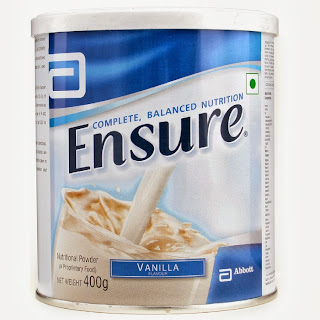Today more people with cancer are being cared for at home. Caregivers or family members are taking on roles that, just a short time ago, were carried out by trained health professionals.
This article lists some common problems that a patient with cancer can have, warning signs to help spot these problems early and how to take care of the patient with those problems.
Some of the common problems a patient with cancer can have are : Poor appetite, anxiety & fear, confusion, constipation, depression, diarrhea, difficulty in moving, fatigue, fever, fluids & dehydration, blood in urine or stool, itching, leg cramps, mouth bleeding or dryness or sores, nausea and vomiting, pain, skin dryness, sleep problems, swallowing problems,etc
Poor Appetite
A person with a poor or no appetite may eat much less than he or she normally does, or may not eat at all. Poor appetite can have a number of causes, such as swallowing problems, anxiety, depression, pain, or nausea and vomiting. It can also be due to a changed sense of taste or smell, feeling full, tumor growth, dehydration, or side effects of chemotherapy or radiation. Poor appetite is most often a short- term problem.
What to look for:
What the Patient can do:
What Caregivers/ family members Can Do:
Call the Doctor if the patient:
Reference: Caring for the Patient with Cancer at Home - a Guide for Patients and Families
This article lists some common problems that a patient with cancer can have, warning signs to help spot these problems early and how to take care of the patient with those problems.
Some of the common problems a patient with cancer can have are : Poor appetite, anxiety & fear, confusion, constipation, depression, diarrhea, difficulty in moving, fatigue, fever, fluids & dehydration, blood in urine or stool, itching, leg cramps, mouth bleeding or dryness or sores, nausea and vomiting, pain, skin dryness, sleep problems, swallowing problems,etc
Poor Appetite
A person with a poor or no appetite may eat much less than he or she normally does, or may not eat at all. Poor appetite can have a number of causes, such as swallowing problems, anxiety, depression, pain, or nausea and vomiting. It can also be due to a changed sense of taste or smell, feeling full, tumor growth, dehydration, or side effects of chemotherapy or radiation. Poor appetite is most often a short- term problem.
What to look for:
- Lack of interest in food
- Refusing to eat favorite foods
- Weight loss
What the Patient can do:
- Ask your doctor what may be causing your poor appetite.
- Eat as much as you want to, but don't force yourself to eat.
- Think of food as a necessary part of treatment.
- Start the day with breakfast.
- Eat small, frequent meals of your favorite foods.
- Try foods high in calories that are easy to eat (like pudding, gelatin, icecream, sherbet, yogurt and milk shakes)
- Add tasty, high-calorie sauces and gravies to your food, and cut meat into small pieces to make it easier to swallow.
- Use butter, oils, syrups, and milk in foods to raise calories. Avoid low-fat foods unless fats cause heartburn or other problems.
- Try strong flavorings or spices.
- Plan meals that include your favorite foods.
- Create pleasant settings for meals. Soft music, conversation and other distractions may help you eat more comfortably.
- Eat with other family members.
- Drink liquids between meals instead of with meals. (Liquids at mealtime can lead to early fullness.)
- Try light exercise one hour before meals.
- Hard candies, mint tea, black tea with lime, lemon barley or ginger ale may help get rid of strange tastes in the mouth.
- With your doctor's approval, enjoy a glass of beer or wine before eating.
- Eat a snack at bedtime.
- When you don't feel like eating, liquid nutritional supplements like Ensure, Resource etc could be taken. Using a straw may help.
What Caregivers/ family members Can Do:
- Try giving the patient six to eight small meals and snacks each day.
- Offer starchy foods (like bread, pasta and potatoes) with high protein foods (like fish, chicken, meats, turkey, eggs, cheeses, milk, tofu, nuts, peanut butter, yogurt, peas and beans)
- Keep cool drinks and juices within patient's reach.
- If the smell of food bothers the patient, offer bland foods cold or at room temperature.
- Create pleasant settings for meals and eat with the patient.
- Offer fruit smoothies, milk shakes, or liquid meals when the patient doesn't want to eat.
- Try plastic forks and knives instead of metal if the patient is bothered by bitter or metallic tastes.
- Don't be upset or impatient when the patient refuses food or can't eat.
- If the patient can't eat, you could offer to read to them, sit with them or give them a back or foot massage.
Call the Doctor if the patient:
- Feels nauseated and cannot eat for a day or more.
- Loses five pounds or more.
- Feels pain when he or she eats.
- Does not urinate for an entire day or does not move bowels for two days or more.
- Does not urinate often or, when he or she does, the urine comes out in small amounts, smells strong, or is dark colored.
- Vomits for more than 24 hours.
- Is unable to drink or keep down liquids.
- Has pain that is not controlled.
Reference: Caring for the Patient with Cancer at Home - a Guide for Patients and Families
















For the healthy living, proper diet and regular exercise is very necessary. Juices and green salad are very good for the health.
ReplyDeleteRegards,
Goji berry Juice